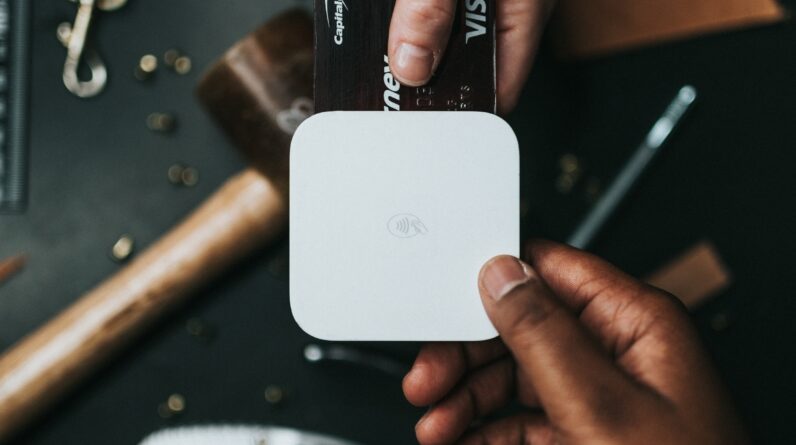
Imagine you’re finally ready to take the exciting step towards buying your dream home. But before you can make that move, you’ll need to navigate the complex world of mortgages. That’s where our Mortgage Checklist comes in handy. Packed with essential tips and important considerations, this checklist serves as your trusty guide, ensuring you don’t miss a beat throughout the mortgage process. From understanding your credit score to gathering the necessary documents, our Mortgage Checklist is here to make your journey towards homeownership as smooth and stress-free as possible.
Table of Contents
Mortgage Checklist
Buying a home is an exciting milestone in life, but it can also be a complex process. To ensure a smooth and successful homebuying experience, it’s important to be prepared and organized. This mortgage checklist will guide you through the key steps and considerations to keep in mind when obtaining a mortgage. From gathering necessary documentation to understanding mortgage options and navigating the closing process, this comprehensive guide will help you feel confident and ready to take on the journey of homeownership.
Documentation
Before applying for a mortgage, it’s important to gather the necessary documentation. Lenders will require proof of your identity, income, employment history, and assets. Be prepared to provide documents such as your driver’s license or passport, pay stubs, tax returns, bank statements, and investment or retirement account statements. It’s a good idea to start gathering these documents early on to avoid any delays in the mortgage application process.
Financial Preparedness
Obtaining a mortgage involves a significant financial commitment, so it’s crucial to assess your financial preparedness before taking this step. Take a close look at your income, expenses, and overall financial situation. Calculate your monthly debt-to-income ratio to understand how much of your income is already allocated towards debt payments. Evaluate your credit score and existing debts to determine if there are any areas that need improvement. Creating a budget and working towards reducing your debt and improving your credit score can increase your chances of securing a favorable mortgage.
Credit Considerations
One of the key factors lenders look at when determining your eligibility for a mortgage is your credit score. A higher credit score typically results in more favorable loan terms and interest rates. Take the time to review your credit report and address any errors or areas of improvement. Paying bills on time, reducing your credit utilization ratio, and avoiding new debt can all contribute to a healthier credit profile. If your credit score is lower than desired, consider waiting to apply for a mortgage until you have taken steps to improve it.
Mortgage Options
Understanding the different mortgage options available is essential when choosing the one that best suits your needs. The two main types of mortgages are fixed-rate and adjustable rate mortgages (ARMs). With a fixed-rate mortgage, your interest rate remains the same throughout the life of the loan, providing stability and predictability. ARMs, on the other hand, have an initial fixed-rate period followed by periodic adjustments based on prevailing interest rates. Research and compare the pros and cons of each option to determine which aligns best with your financial goals and circumstances.
Interest Rates
The interest rate on your mortgage will significantly impact the overall cost of homeownership. A low interest rate can save you thousands of dollars over the life of your loan. Keep an eye on current interest rate trends and consult with lenders to get rate quotes. Factors that influence mortgage rates include market conditions, the lender’s assessment of risk, and your individual financial profile. Consider locking in a rate if you’re satisfied with the current market conditions to protect yourself from potential rate increases during the loan process.
Loan Terms
Loan terms refer to the length of time you have to repay your mortgage. Common loan terms are 15, 20, and 30 years, but other options may be available depending on the lender. Shorter terms generally come with higher monthly payments but result in substantial interest savings over the life of the loan. Longer terms offer lower monthly payments but may result in paying more interest in the long run. Carefully consider your financial situation, long-term goals, and monthly budget when deciding on the most suitable loan term for your needs.

Down Payment
Saving for a down payment is a critical aspect of preparing for homeownership. The down payment is the amount you contribute towards the purchase price of the home, and it serves as a demonstration of your financial commitment and ability to manage homeownership costs. The traditional goal is to save 20% of the purchase price, which can help you avoid private mortgage insurance (PMI). However, there are loan programs available that require lower down payments, such as FHA loans. Consider your financial capabilities, loan options, and mortgage insurance requirements when determining how much to allocate for your down payment.
Mortgage Pre-approval
Obtaining a mortgage pre-approval is a valuable step in the homebuying process. It involves submitting your financial information to a lender, who will then assess your creditworthiness and provide you with a pre-approval letter stating the amount you qualify to borrow. This letter can give you a competitive edge in a competitive housing market, as it shows sellers that you are a serious and qualified buyer. Keep in mind that a pre-approval does not guarantee final loan approval, but it is a valuable step towards securing a mortgage.

Applying for a Mortgage
Once you have found your dream home and have a purchase agreement in place, it’s time to officially apply for a mortgage. The lender will review your application and documentation, conduct an appraisal of the property, and evaluate your financial profile. Be prepared to provide any additional documentation that may be requested during this process. It’s important to review the loan terms, interest rate, and closing costs before accepting the mortgage offer. Working closely with your lender and promptly responding to any requests for information will help streamline the mortgage approval process.
Closing Process
The closing process is the final step in obtaining a mortgage. It involves signing the necessary legal documents, paying closing costs, and officially transferring ownership of the home. Before the closing date, you’ll receive a Closing Disclosure, which outlines the final loan terms, interest rate, and closing costs. Review this document carefully and ask any questions you may have. Arrive at the closing with the required funds to cover closing costs, and bring a valid ID. Once all paperwork is signed, you’ll receive the keys to your new home. Congratulations, you are now a homeowner!
In conclusion, obtaining a mortgage requires careful preparation and consideration. By following this comprehensive mortgage checklist, you can navigate the process with confidence and ensure a smooth and successful homebuying experience. Remember to gather the necessary documentation, assess your financial readiness, review your credit profile, explore mortgage options, monitor interest rates, understand loan terms, save for a down payment, obtain a mortgage pre-approval, complete the application process diligently, and be prepared for the closing process. With proper planning and guidance, you’ll be well on your way to achieving your dreams of homeownership.










